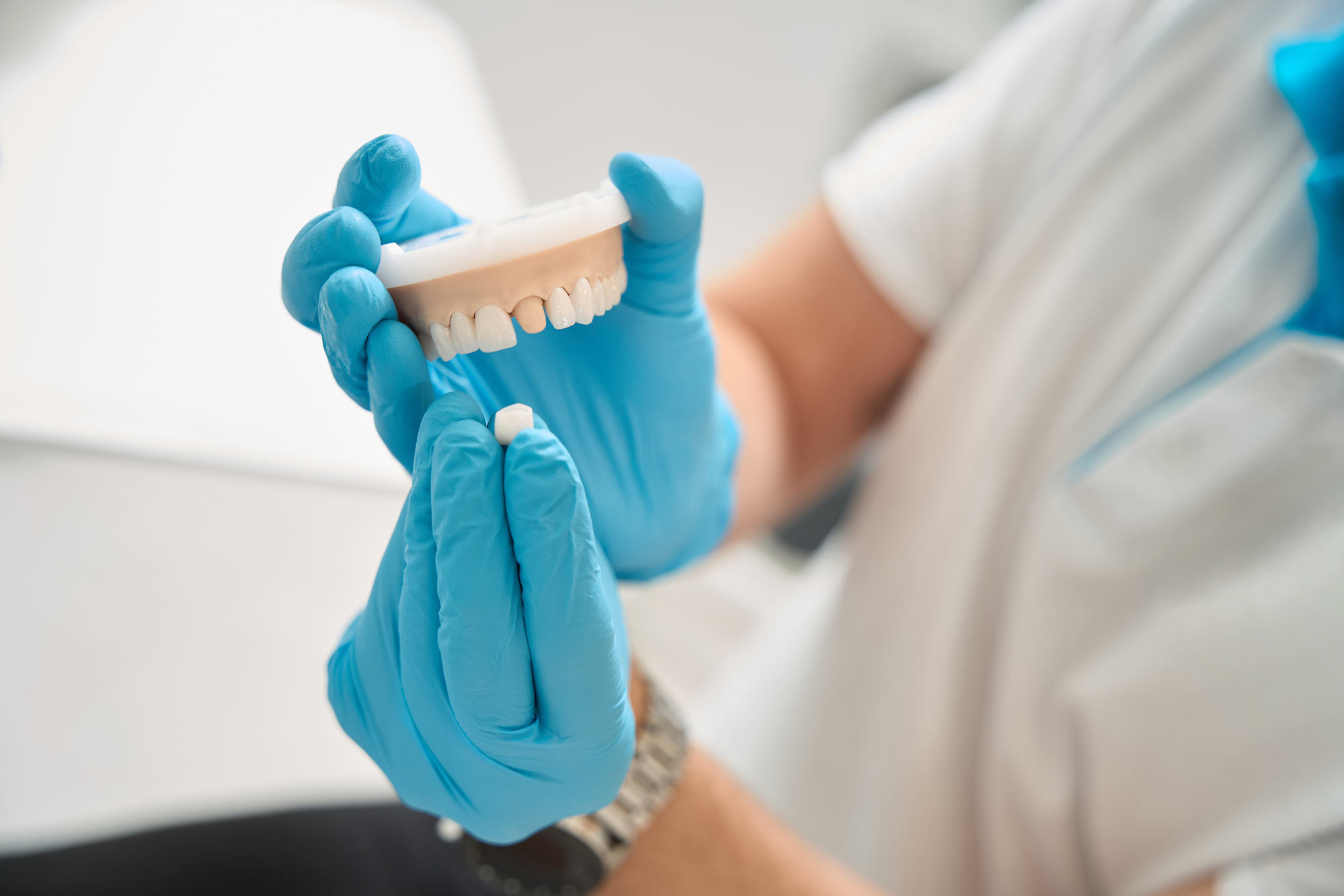Does Insurance Cover Dental Implants?
Dental implants are one of the most highly recommended treatments for missing teeth. They offer a long list of benefits, from promoting healthy bone structure to everyday comfort. However, this...

Do you have a dental crown? You’re not alone. Millions of people do too. After all, crowns are an excellent way to protect your tooth structure and function. Unfortunately, crowns do occasionally come loose or fall out. Knowing what causes this unfortunate situation can help you know what you do if it happens to you, or it may even help you avoid losing a crown altogether.
A dental crown is a customized “cap” that fits over a damaged or decayed tooth, helping to restore its shape, strength, and appearance. Dental crowns are typically used to protect weakened teeth, restore broken or worn-down teeth, or cover a tooth after a root canal.
Crowns are tough but it is possible for them to fall out. There are several circumstances that can contribute to a dental crown becoming loose or falling out. Let’s explore some of the most common reasons.
An improper fit is a primary reason why dental crowns may become loose or fall out. If the crown does not fit snugly on your tooth, there can be small gaps between the crown and the tooth. These gaps can allow bacteria to enter, leading to decay and further weakening the tooth, eventually causing the crown to loosen and fall out.
One way you can avoid an improper fit is by choosing a dentist who utilizes digital impressions to fabricate your crown. This high-tech alternative to traditional trays is more reliable and results in a more precise impression and, therefore, a better overall fit.
Like anything else, dental crowns are subject to wear and tear. Over time, the constant pressure of chewing and grinding can weaken the crown. In addition, dental crowns are typically held in place with dental cement. This cement can break down over time, causing the crown to loosen, especially if it is of poor quality or not applied properly. Grinding your teeth or clenching your jaw can also contribute to wear and tear on your dental crown.
Choosing a provider specializing in tooth replacement is a good way to avoid this issue. In addition, if there is a chance you grind your teeth, bring this up at your next dental appointment. There may be treatments available.
If bacteria enter the gap between the crown and the tooth, it can lead to decay. In some cases, this decay can progress to the point where the crown becomes loose or falls out. Be diligent about brushing and flossing, as well as keeping your twice-per-year dental appointments.
A blow to the mouth or an accident can cause a crown to loosen or fall out. Even if the impact doesn’t directly hit the crown, the force can still cause damage to the tooth or the crown’s supporting structure.
Of course you can’t prevent all accidents. However, if you play contact sports or engage in activities that could result in a blow to the mouth, wearing a mouthguard can help protect your teeth and dental crowns from damage.
Traditionally, your dentist would first take an impression of your tooth, then send it to a lab to fabricate your permanent crown. While you wait, your dentist would place a temporary crown. Temporary crowns are not custom-fit to your tooth and are placed with a weaker, temporary adhesive. For these reasons, a temporary crown is far more likely to become loose and fall out than a permanent one.
The solution? CEREC crowns are fabricated right in our office without the wait. This means no need for a temporary crown at all! Your permanent crown is created and placed in a single visit.
So, what should you do if your dental crown falls out? Follow these steps to address the issue and protect your tooth:
If you feel your crown is loose at all, come in as soon as possible to have it checked. It is likely we can secure it before it becomes a bigger problem.
Don’t let a lost or loose dental crown ruin your day – or your smile! If you’re experiencing issues with your dental crown or need advice on how to care for it, don’t hesitate to reach out to our office.